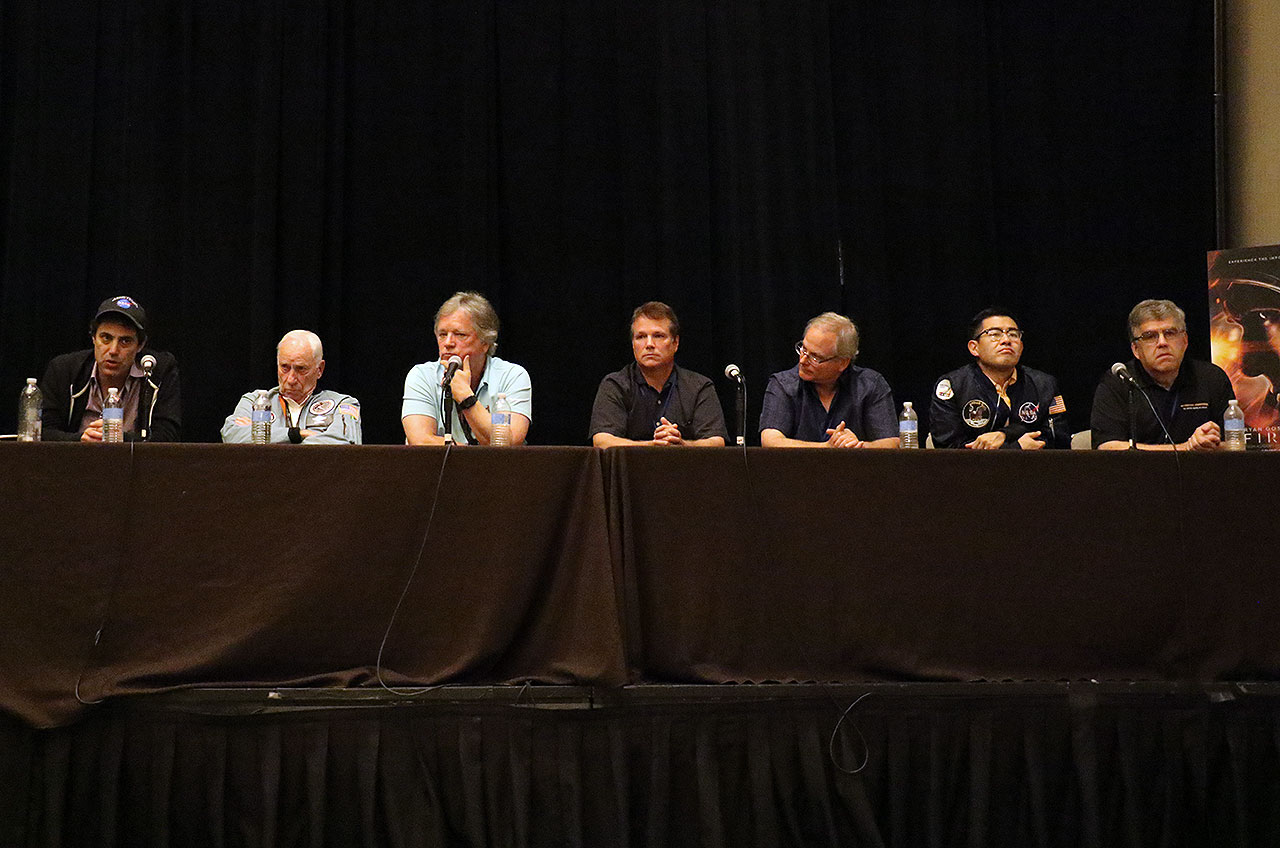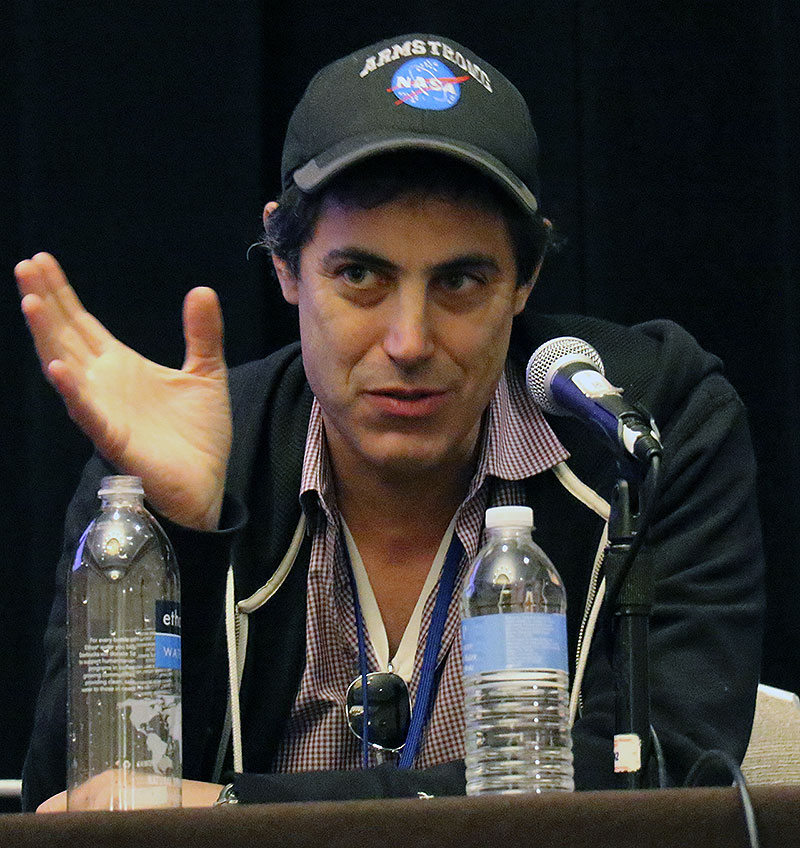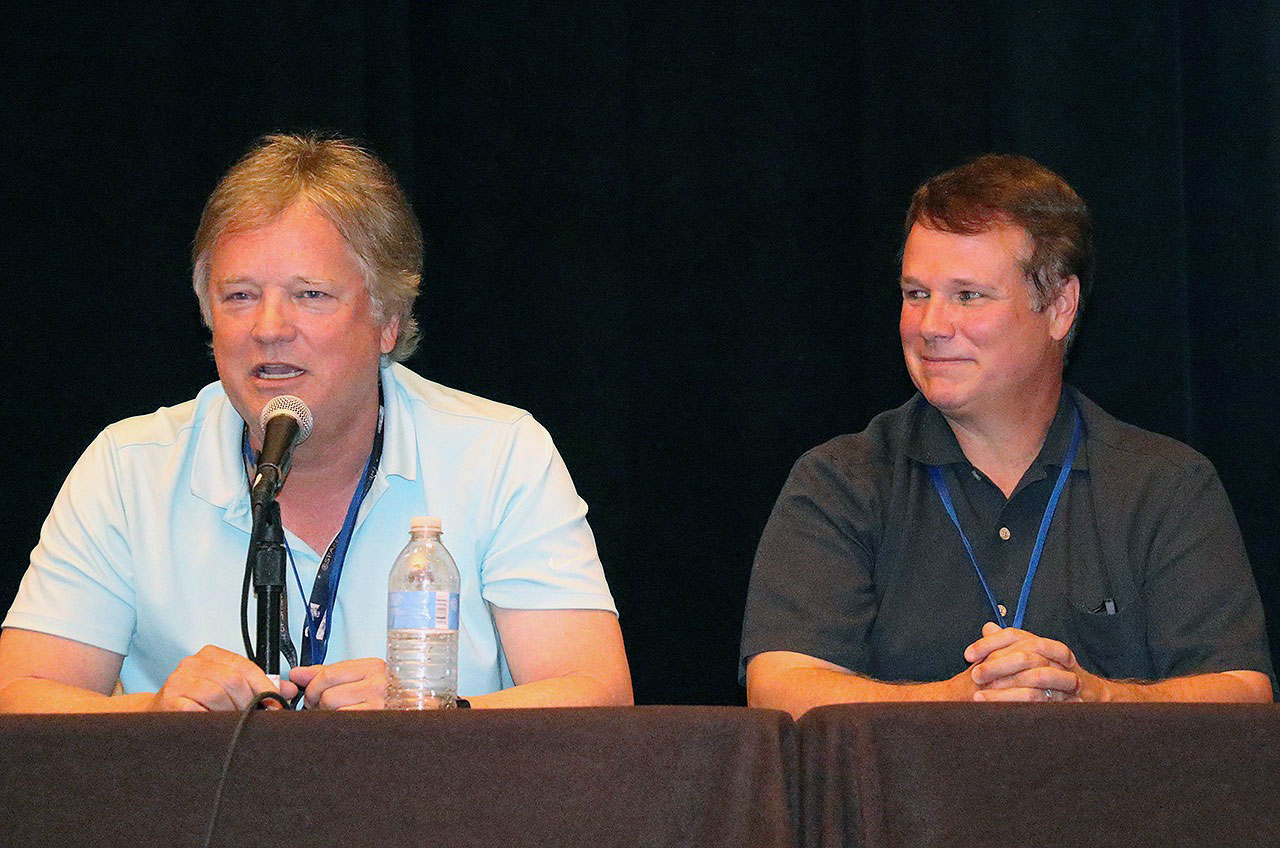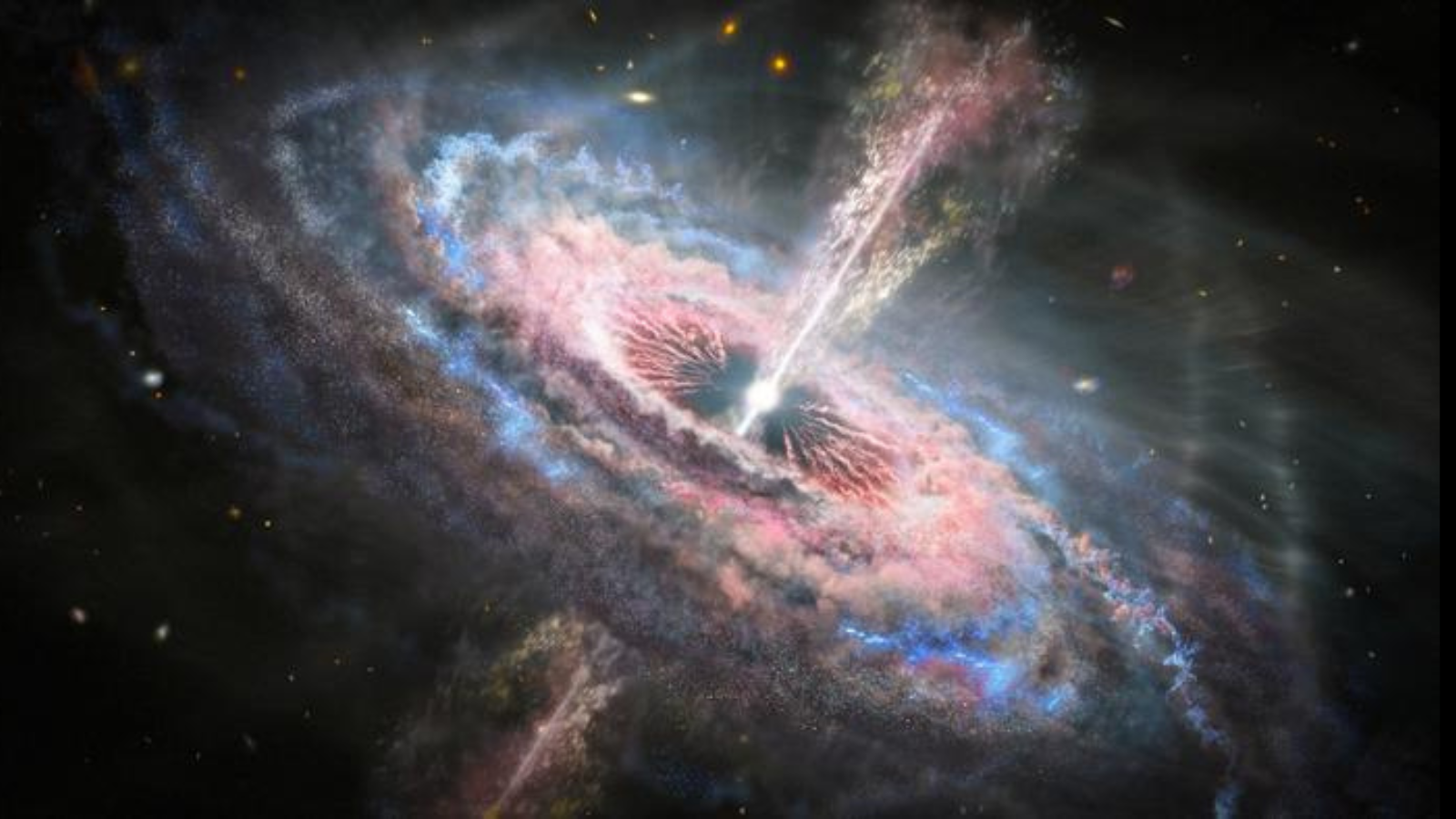Neil Armstrong's Sons, Filmmakers Discuss Making 'First Man'
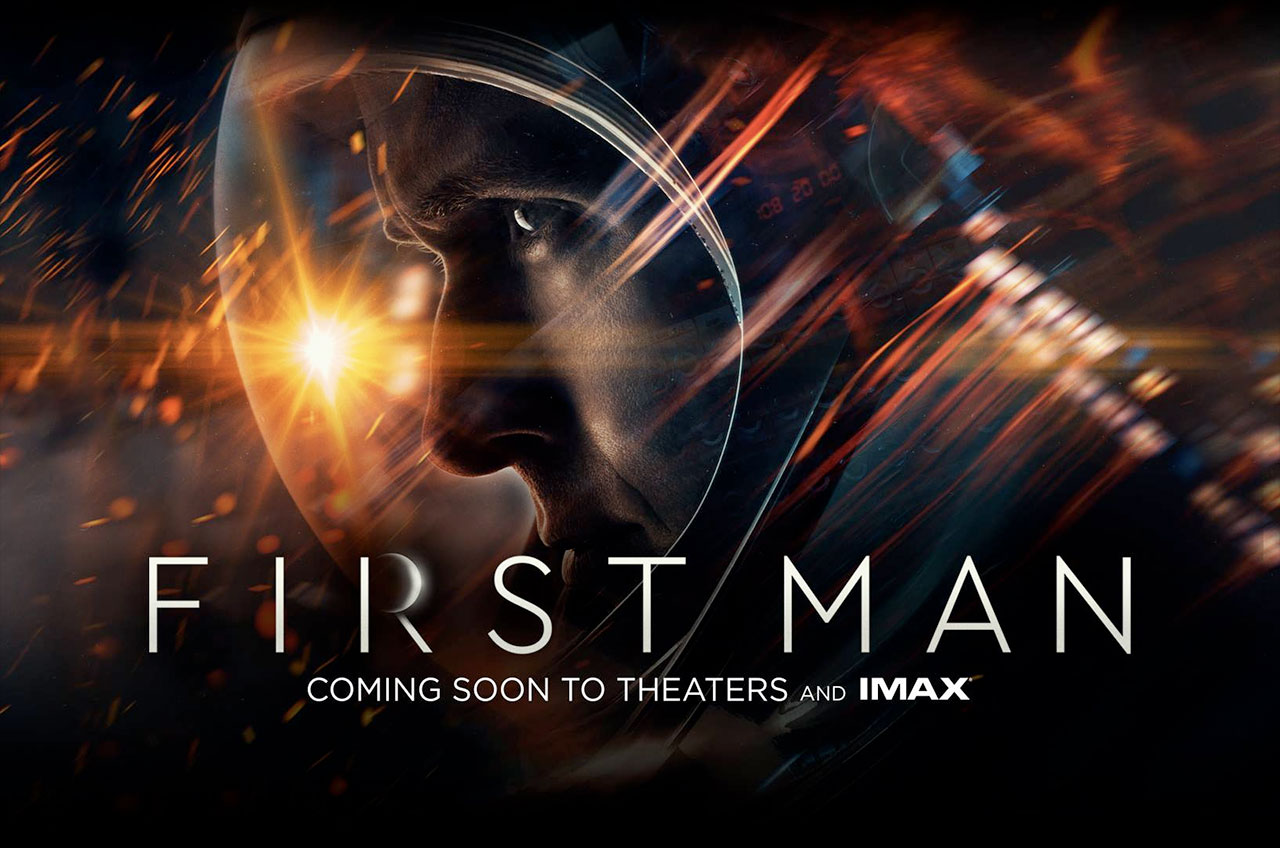
Breaking space news, the latest updates on rocket launches, skywatching events and more!
You are now subscribed
Your newsletter sign-up was successful
Want to add more newsletters?

Delivered daily
Daily Newsletter
Breaking space news, the latest updates on rocket launches, skywatching events and more!

Once a month
Watch This Space
Sign up to our monthly entertainment newsletter to keep up with all our coverage of the latest sci-fi and space movies, tv shows, games and books.

Once a week
Night Sky This Week
Discover this week's must-see night sky events, moon phases, and stunning astrophotos. Sign up for our skywatching newsletter and explore the universe with us!

Twice a month
Strange New Words
Space.com's Sci-Fi Reader's Club. Read a sci-fi short story every month and join a virtual community of fellow science fiction fans!
TUCSON, Arizona — After reviewing an early version of the script, Neil Armstrong's elder son told the filmmakers behind Universal's "First Man" that, when it came to portraying his father's astronaut career, "you mess with canonical history at your own peril."
Rick Armstrong's advice was heeded. Director Damien Chazelle, screenwriter Josh Singer and their production team sought from the start to get things right.
"They didn't have to take our advice, but they have in almost everything," said Rick Armstrong. [Neil Armstrong: American Icon Remembered (Photos)]
"First Man," which opens on Oct. 12 in U.S. theaters, follows Neil Armstrong (Ryan Gosling) as he went from being a NASA research pilot in 1962 to taking his "small step" in 1969. In between, the movie focuses on the lesser known challenges that the first moonwalker faced.
Armstrong's two sons, Rick and Mark, joined Singer at the annual Spacefest in Tucson, Arizona, on Saturday (July 7) to talk about the making of "First Man." The panel discussion also included historian James Hansen, author of the authorized biography from which the film borrows its title and is based; Apollo 15 astronaut Al Worden, who served as a technical consultant on the set; artist Chris Calle; spacesuit replica fabricator Ryan Nagata; and author Rick Houston, who advised on the recreation of Mission Control.
"Probably people in this room and people in the space community think Hollywood can't do this. They can't accurately represent history because they don't care about it, they are not interested in it. But when you come to understand the level of work that they have done to be as accurate as they can, you'll be impressed," said Rick Armstrong.
"This isn't a documentary. It is a movie. There are going to be things in it that didn't happen or didn't happen that way, I am sure," he continued. "I think I am safe in saying that when that happens, it will have happened for a reason. Not because they didn't know or that they didn't care — there are realities of moviemaking, maybe production reasons why they couldn't do something quite correctly. There are all kinds of reasons why, but I think we have a chance of setting the bar high."
Breaking space news, the latest updates on rocket launches, skywatching events and more!
Houston, we haven't a problem
Singer offered an example of how the production has gone to great lengths to get even minor details correct.
"We wanted to shoot Mission Control documentary-style," Singer said. "Usually when you shoot something like this, you have everyone say 'watermelon, watermelon, watermelon, watermelon' and then you loop in the dialogue later. But Damien wanted to shoot the whole thing, so if the camera went by a console and a flight controller was talking, it had to be he was saying something real."
During a typical spaceflight, there were as many as 50 people in the front room of Mission Control. Each console, in addition to answering to the flight director, would talk with a support team in a back room, so there could be and often were multiple conversations going on at once.
"So I had to write 40 pages of dialogue, and I didn't know where to start!" said Singer. "So I went to [Apollo-era flight director] Gerry Griffin, and I must have been the most irritating guy in the world, because I kept calling, asking, 'What would FDO [the Flight Dynamics Officer] say? What would GUIDO [Guidance] say?' And I literally walked through all of the major positions."
"So when we shot it, everybody was talking all at once because that was the only way to get the desired effect," said Singer, whose earlier screenplay for the 2015 film "Spotlight" won him an Oscar.
Mark Armstrong was not only in the room to see that all unfold but also has a cameo in that scene portraying the late Paul Haney, the "voice of Mission Control."
"Since I was in that scene in Mission Control, that was one of the things that really struck me as over the top as to attention to detail and made me feel really good about the film," he said. [NASA's Historic Apollo 11 Moon Landing in Pictures]
Snow on the moon
As impressive as that was, the dialogue was just one of the details the filmmakers succeeded at recreating.
"When I walked onto the Mission Control set, I can't even begin to tell you how powerful a moment that was for me because all of the consoles were lit up, the displays at the front of the room were lit up and there was even food scattered around the consoles," said Rick Houston, who has spent the better part of the last decade researching and writing about the people who worked in Mission Control.
"By the end of the shoot, it stunk like Mission Control, too," he said to laughter. "They might be called fake cigarettes and fake cigars, but I am here to tell you that Kyle Chandler [who portrays chief astronaut Deke Slayton] enjoyed his cigar a little too much."
Ryan Nagata, who provided the film with replica spacesuit parts and fabricated the X-15 pressure suit worn by Gosling, said everyone was aware of the responsibility they had to history.
"I worked mostly with the costume and prop departments, but I heard a lot of things on the set like, 'In 30 years of working in Hollywood, I've never experienced a movie as stressful as this,' he recalled. "Everybody was into it. I think that was because it was about something real and not science fiction."
"It was something a lot of people care about. We wanted to make it as accurate as possible," said Nagata.
Sometimes though, the pursuit of reality resulted in unexpected obstacles.
"Damien didn't like how in prior incarnations the moon had been shot on a sound stage. It didn't feel real or visceral," said Singer. "So he decided we would shoot it in a quarry, which looked great, but it was the coldest winter in recorded history.
"After a week on the site shooting the movie, it started to snow. Now, as you probably know, it doesn't snow on the moon, so we had to bail on production." [Neil Armstrong: First Man on the Moon]
Diversions from history
As an Apollo astronaut who orbited the moon, Al Worden was part of the history he helped recreate in "First Man." So it came as a surprise when he found himself recommending history be changed.
For example, in one scene, the filmmakers were looking for how the astronauts would know that a rocket engine was ready to ignite. In reality, the spacecraft had no such indicator.
"I said, 'Put a light in the cockpit.' It is not supposed to be there, but put a light in the cockpit to make sure that the audience knows that the engine is going to start firing," said Worden.
Each time a change like that was necessary, Singer and "First Man" author Jim Hansen took note.
"Jim and I have been spending a lot of time putting together an annotated script," said Singer. "This is a book that will be published with the movie, and not only will it showcase beautiful stills from the film, which does look gorgeous, but beyond that we want to be very clear about what we fictionalized and when we diverged why it was we made that choice."
The book will also detail how Singer, Hansen and others conducted research for the film and where the digging led them in the course of creating "First Man."
"Ever since I received authorization from Neil to write his biography, I have felt this responsibility to do him right," said Hansen. "That responsibility was magnified by the making of this film."
Follow collectSPACE.com on Facebook and on Twitter at @collectSPACE. Copyright 2018 collectSPACE.com. All rights reserved.

Robert Pearlman is a space historian, journalist and the founder and editor of collectSPACE.com, a daily news publication and community devoted to space history with a particular focus on how and where space exploration intersects with pop culture. Pearlman is also a contributing writer for Space.com and co-author of "Space Stations: The Art, Science, and Reality of Working in Space” published by Smithsonian Books in 2018.
In 2009, he was inducted into the U.S. Space Camp Hall of Fame in Huntsville, Alabama. In 2021, he was honored by the American Astronautical Society with the Ordway Award for Sustained Excellence in Spaceflight History. In 2023, the National Space Club Florida Committee recognized Pearlman with the Kolcum News and Communications Award for excellence in telling the space story along the Space Coast and throughout the world.

